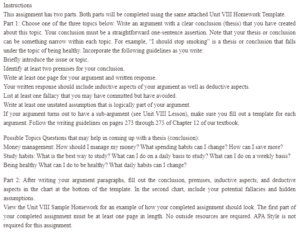Money Management
Personal money management is an act of balancing one’s income and wealth with one’s desires, wants, and objectives. Even though most of us may survive without having sophisticated strategies in money management, facing financial pressures at some point in life is inevitable. The finances that most of us make during our productive adult years ought to be managed effectively if we are to lead fulfilling lives. I have personally realized that responsibilities keep increasing as we grow older, and I have to embrace effective money management to attain this goal. Every day, I feel the pressure of saving more and investing to be secure from these financial uncertainties. A key solution to avoiding these financial pressures is avoiding impulse buying.
I based my conclusion of avoiding impulse buying on two premises. Firstly, I have noted that the payment method used in my transactions affects my spending behavior. Whenever I swipe a credit card, I am never concerned about spending. On the contrary, effective money management calls for accountability whenever I intend to spend. Spending cash out of pocket would make more sense. Another premise for proper money management is having a discretionary budget for unavoidable fun spending. A discretionary spending budget will go a long way in helping me avoid unnecessary expenditures. Setting a discretionary budget will help me avoid spending way above what I can afford but still be in a position to purchase things that bring me joy.
Hire our assignment writing services in case your assignment is devastating you.
There is, however, one logical assumption that is part of the argument above. The entire argument assumes that no unforeseen circumstances could make one spend significantly despite being financially disciplined. For instance, getting sick and being admitted to the hospital may significantly eat into one’s savings.
| Conclusion: | Premises: | Inductive Aspects: | Deductive Aspects: |
| I will avoid impulse spending | · Adopt effective payment methods
· Setting a discretionary budget
|
The premise that using cash payment methods reduces impulse buying has an inductive aspect. | The entire conclusion, ‘I will stop impulse spending,’ has a deductive aspect. |
| Potential Fallacies | (Hidden) Assumptions |
| I have not argued that spending on oneself for gratification amounts to poor money management. For that reason, I included the need for a discretionary budget. | I am assuming that financial insecurity arises from poor spending habits. |
ORDER A PLAGIARISM-FREE PAPER HERE
We’ll write everything from scratch
Question 

Money Management
Instructions
This assignment has two parts. Both parts will be completed using the same attached Unit VIII Homework Template.
Part 1: Choose one of the three topics below. Write an argument with a clear conclusion (thesis) that you have created about this topic. Your conclusion must be a straightforward one-sentence assertion. Note that your thesis or conclusion can be something narrow within each topic. For example, “I should stop smoking” is a thesis or conclusion that falls under the topic of being healthy. Incorporate the following guidelines as you write:
Briefly introduce the issue or topic.
Identify at least two premises for your conclusion.
Write at least one page for your argument and written response.
Your written response should include inductive aspects of your argument as well as deductive aspects.
List at least one fallacy that you may have committed but have avoided.
Write at least one unstated assumption that is logically part of your argument.
If your argument turns out to have a sub-argument (see Unit VIII Lesson), make sure you fill out a template for each argument. Follow the writing guidelines on pages 273 through 275 of Chapter 12 of our textbook.
Possible Topics Questions that may help in coming up with a thesis (conclusion):
Money management: How should I manage my money? What spending habits can I change? How can I save more?
Study habits: What is the best way to study? What can I do on a daily basis to study? What can I do on a weekly basis?
Being healthy What can I do to be healthy? What daily habits can I change?
Part 2: After writing your argument paragraphs, fill out the conclusion, premises, inductive aspects, and deductive aspects in the chart at the bottom of the template. In the second chart, include your potential fallacies and hidden assumptions.
View the Unit VIII Sample Homework for an example of how your completed assignment should look. The first part of your completed assignment must be at least one page in length. No outside resources are required. APA Style is not required for this assignment.